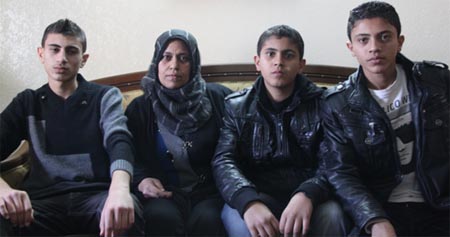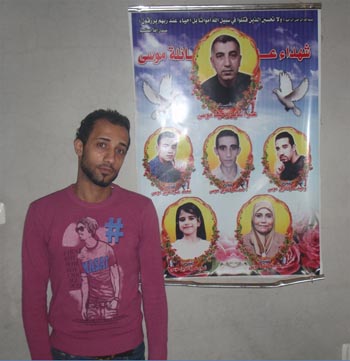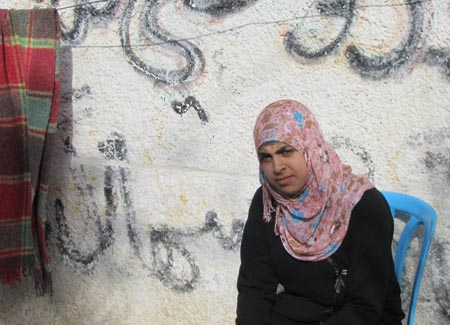Tag: Palestinian Centre for Human Rights
-
15 January 2009: The al-Nadeem family
15 January 2012 | Palestinian Centre for Human Rights “Naser used to help the children with their school work, especially English and mathematics. Now that is my duty. Nothing can compensate me for the loss of my husband. He was always very tender, understanding and calm.” On 15 January 2009, shortly after 7:00, the Israeli…
-
14 January 2009 – Muhammed Mousa
14 January 2012 | Palestinian Centre for Human Rights “We would stay up late at night talking with each other about what had happened over the day, we were brothers, if ever I needed anything I could go to them and they would help me out” On 14 January 2009, at approximately 21:00, Israeli aircraft…
-
13 January 2009: Hibba al-Najjar
13 January 2012 | Palestinian Centre for Human Rights “The first two years I could manage but this year I have been suffering a lot from the loss of my mother. When I see girls from my school with their mother or talking about their mother, I miss my mother even more. I need to…



